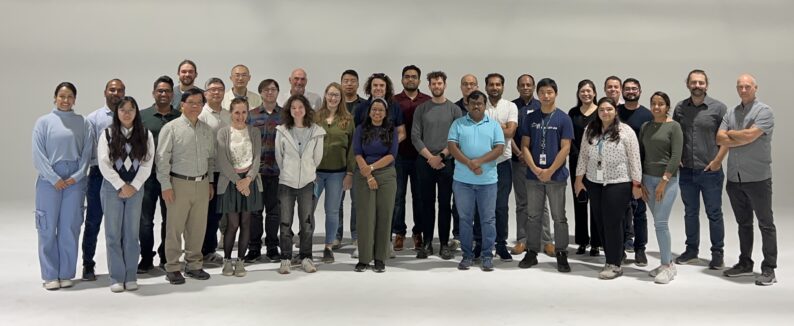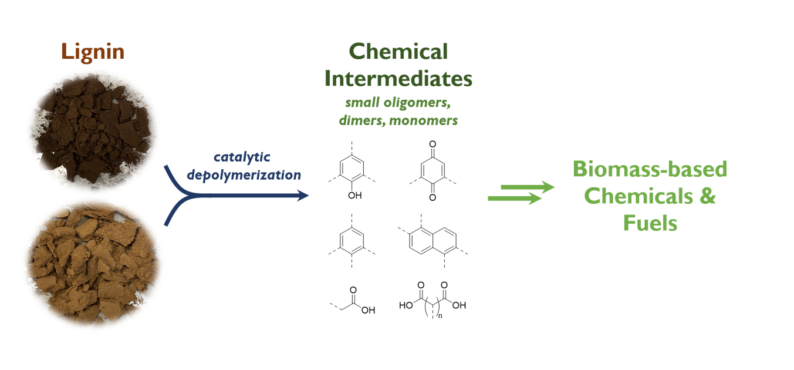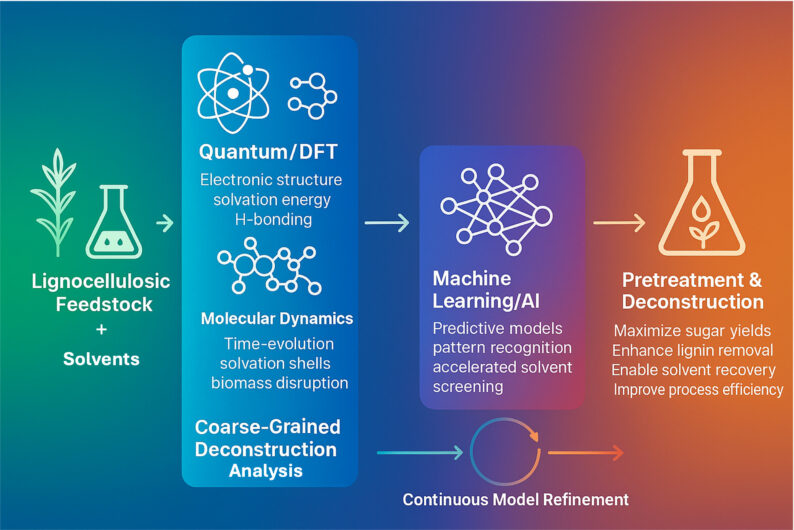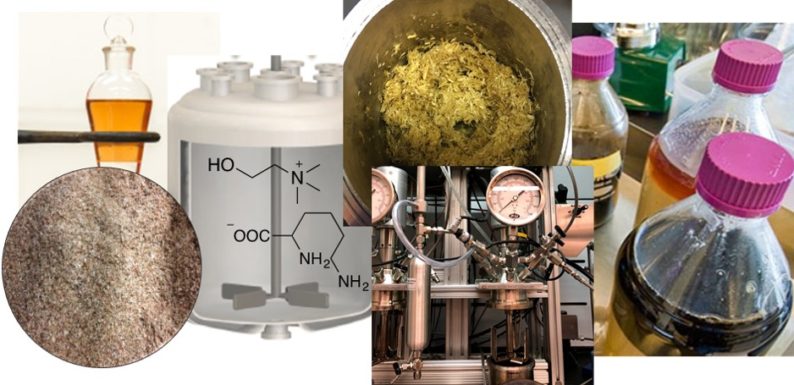A limiting key step in the biological conversion of biomass to biofuels and bioproducts is the efficient deconstruction and separation of targeted intermediates derived from the polysaccharides and lignin initially present. JBEI has established world-class and differentiated expertise in the use of aprotic and protic ionic liquids (ILs), deep eutectic solvents (DESs), and alkanolamines as biomass pretreatment solvents that represent a potential game-changing deconstruction technology, but there remain several significant scientific challenges that must be addressed before an affordable IL-based process is commercially viable. To address these challenges, we will discover and demonstrate solvents that are compatible with, or even improve the performance of, downstream enzymes and organisms, which in turn will enable process consolidation and intensification to minimize capital and operating expenses and increase yields.
Another significant focus of our efforts is on the development and demonstration of efficient abiotic and biotic technologies that depolymerize lignin into high yields of bioavailable intermediates suitable for conversion by JBEI’s microbial hosts into biofuels and bioproducts. This includes modeling of lignin structures and bond moieties in a variety of complex solvent environments to track energetics and catalysis. Scientists in the Deconstruction Division will explore targeted microbial communities, with the ultimate goal of developing engineered microbial communities that are capable of breaking down lignin and converting it into biofuels and bioproducts. Fungi are an integral part of lignocellulosic conversion processes from enzyme to biofuel and bioproducts production. Researchers in the Deconstruction Division are engineering the filamentous fungi Aspergillus niger and the oleaginous yeast Rhodosporidium toruloides that can convert sugars and lignin-derived intermediates into bioproducts. The Deconstruction Division works closely with the other JBEI Divisions in order to provide the fundamental breakthroughs needed to establish a complete integrated solution for the production of targeted intermediates and products from sustainable lignocellulosic feedstocks.
Research Challenges
- Feedstock agnostic pretreatments that enable atom-economical valorization of the majority of the carbon present in the plant cell wall do not currently exist.
- Lignin is a complex heterogeneous polymer and no robust and cost-effective method, biological or chemical, for its deconstruction into targeted intermediates exists.
- Developing and optimizing a lignocelluloytic enzyme mixture capable of liberating fermentable sugars and lignin monomers at industrially relevant process conditions.
- Enzymes that depolymerize polysaccharides and lignin into intermediates suitable for bioconversion remain complex, costly and difficult to express at high titers in recombinant hosts.
- The discovery of advanced biomass pretreatment solvents that are compatible with, or improve the performance of, enzymes and biofuel and bioproduct microbial hosts and can be efficiently recycled.
Research Goals
- Develop and deploy predictive deconstruction software tools.
- Develop and demonstrate a feedstock agnostic biomass pretreatment technology.
- Develop and demonstrate abiotic and biotic pathways to 90% lignin depolymerization yields.
- Develop and demonstrate >15g/L of yields of bioproducts produced by the bioconversion of lignin-derived intermediates using fungi.





